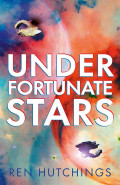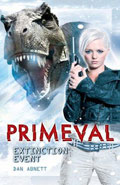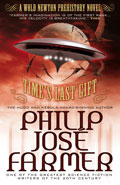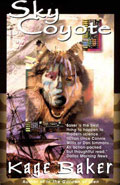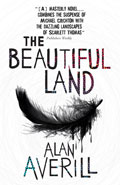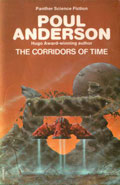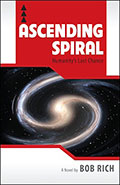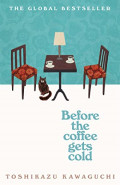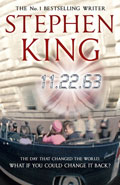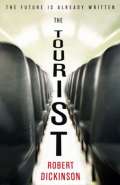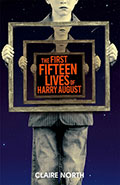Before the coffee gets cold
By Toshikazu Kawaguchi
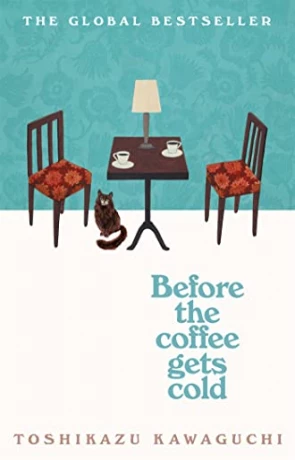
- Before the coffee gets cold
-
Author: Toshikazu Kawaguchi
-
Publisher: Picador
- ISBN: 978-1529029581
- Published: December 2015
- Pages: 224
- Format reviewed: Paperback
- Review date: 09/01/2024
- Language: English
There seems to be a bit of an explosion of time travel novels in the last few years, some even flying under the radar of being labelled "science fiction" - so that people who only read "serious fiction" can be entertained too I guess. Before the coffee gets cold, the first in a series, initially seems to stand out from the multitude, not least by way of it's intriguing time travel rules.
In a small back alley in Tokyo, a café has been serving carefully brewed coffee for over a hundred years. It's not just coffee that is served here though. Visitors get a chance to travel back in time and meet someone from the past. There are strict rules though. They must sit in a particular seat, not leave the café whilst in the past, and most importantly they must return to the present before the coffee gets cold. This underpins the inevitable fact:
...at the end of the day, whether one returns to the past or travels to the future, the present doesn't change
Then there is the fact that it's Japanese science fiction, which often means quirky, a bit weird or occasionally even down-right odd (looking at you Haruki Murakami). I like quirky, weird and odd, and you will need to, if you are going to like this book.
Originally beginning life as a play (written by Kawaguchi and produced by 1110 Productions) , it won the 10th Suginami Drama Festival grand prize. The story was then adapted into a novel by the playwright and has since been translated into English by Geoffrey Trousselot, adapted into a film in 2018 (Cafe Funiculi Funicula staring Kasumi Arimura) and has been optioned to become a TV series (although there has not been much said about that lately).
Reading Before the coffee gets cold, you can tell that the story was originally intended for the theatre, it still reads a lot like a play, with overly descriptive explanations that read like notes for the stage setting, and four main chapters set out like scenes. There is a degree of repetition that feels entirely superfluous and the dialogue is occasionally disjointed. Its a story that is very much character driven, but the characters themselves are fairly two-dimensional and I don't think enough effort was made into changing those flowery "play note" descriptions into fleshing out the characters. It makes sense that it was a play, a film and may perhaps also be a TV series at some point in the future.
I think it works less well as a book though, and if anything, it feels like a cross between a play and a fixup (short stories joined together and merged into a novel). The four chapters could quite easily be turned into individual short stories and feel oddly disparate. There is however still a lot going for the book, IF you can get past this extended exposition, the occasionally repetitive and disjointed dialogue, AND the play-like layout. It's actually an interesting read that offers introspection on a number of serious topics, including Alzheimer’s disease, dealing with grief and how important hope can be when looking to the future. The quality of the prose is actually pretty good too - excepting the issues already mentioned, and there is some real emotional weight behind some of the stories.
The idea that you can go back into the past and talk to people is an interesting premise, and when you add the fact that nothing you do in that past will change the present / future in any way means that these journeys are purely are emotional ones. Who wouldn't want a chance to just spend time again with those they've lost? But the rules in the café are not that straight-forward either, and there becomes limited scope to actually meet anyone anyway. As such, I think the brilliant idea of coffee with someone in the past (or the future) is a bit lost, and the book is more just about the problems the people in the four chapters have, regardless of where they are in time. Where the book shines is, as mentioned the quality of the prose, and through the exploration of the topics raised:
When in the presence of someone with whom you have a bond, and to whom you have entrusted your feelings, it is hard to lie and get away with it. The truth just wants to come flowing out. This is especially the case when you are trying to hide your sadness or vulnerability. It is much easier to conceal sadness from a stranger, or from someone you don't trust
But I feel there is a massive missed opportunity on the whole time travel idea, which is quite disappointing. Ultimately what we are left with is a disjointed, difficult to read story that explores some serious themes but misses out on what should be the main premise, not so much science fiction but fiction thinly wrapped in fantasy.
Written on 9th January 2024 by Ant .
